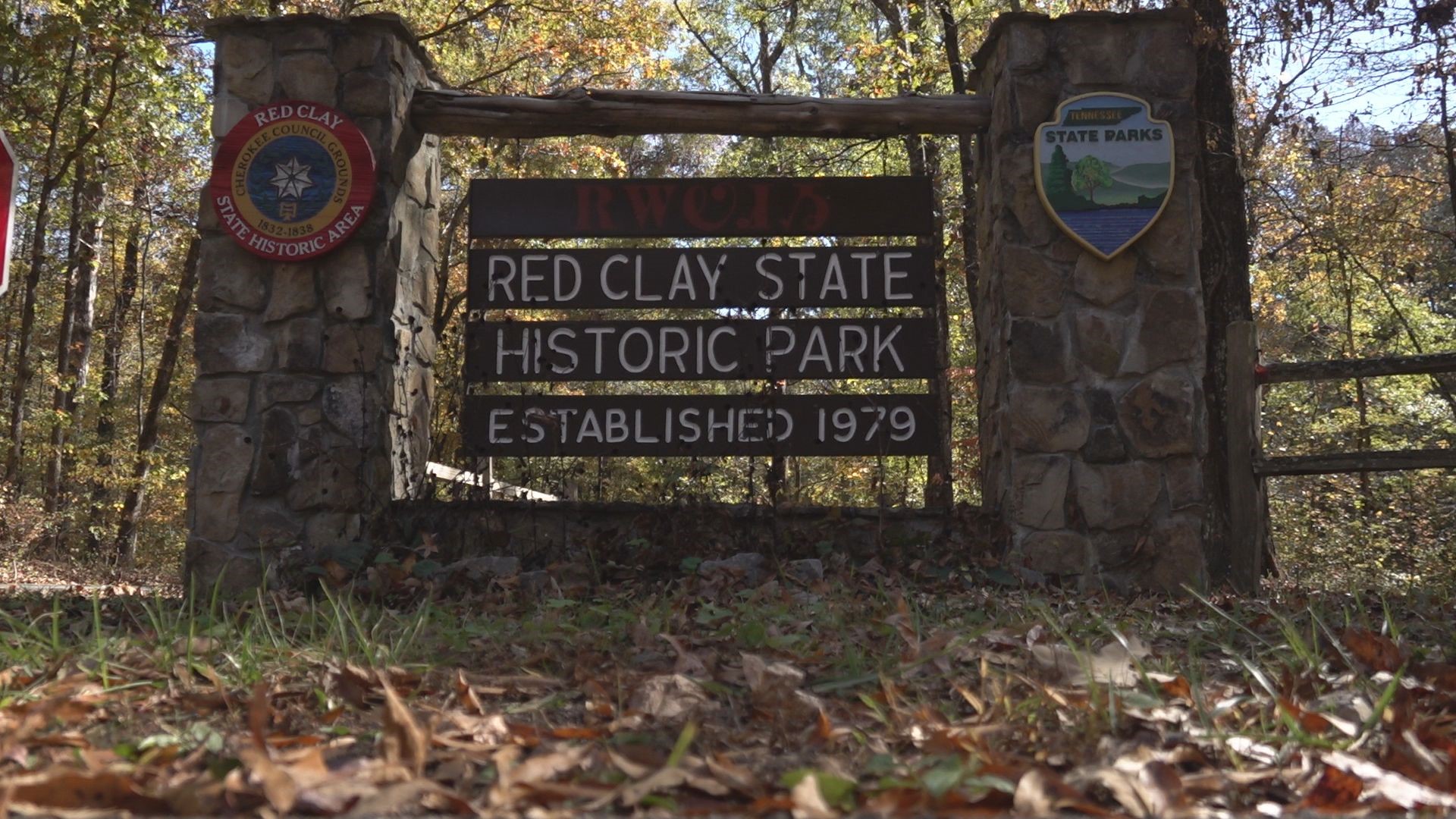CLEVELAND, Tenn — Red Clay State Park, located in Bradley County, served as the Eastern capital of the Cherokee Nation just before the Trail of Tears.
“It has been argued in the past that Red Clay is where they found out that they were going to have to be moved, but they're going to lose their homes, their valleys their homeland forever, ” said Park Manager Erin Medley.
The Cherokee moved their capital to Red Clay in 1832.
Although modest in size, the park makes up for it by the immense amount of history the land holds.
“We're a very small park, only 263 acres, but we do have a museum, and in the museum, we have new panels to tell the full history, the full story of what happened here at Red Clay,” Medley said.
Those who died on the Trail of Tears are forever immortalized in Red Clay with an eternal flame that holds actual coal from the final council fire held on the grounds in the 19th century.
“When the Cherokee left here, they gathered up the coals from the council fire, they put them in iron pots, and they had four Cherokee men carry those pots all the way from here to Indian territory to what we now know as Oklahoma. When they arrived, they rekindled those coals and started a new council fire," Medley said.
Red Clay is also home to the Blue Hole—sacred Cherokee water that is still used today for ceremonial purposes.
Medley hopes that visitors use their time at the park as an educational opportunity.
“I remember in school, there was probably like a paragraph or two about the Trail of Tears. You know, we need to learn from the past so we can do better in the future," Medley said.

